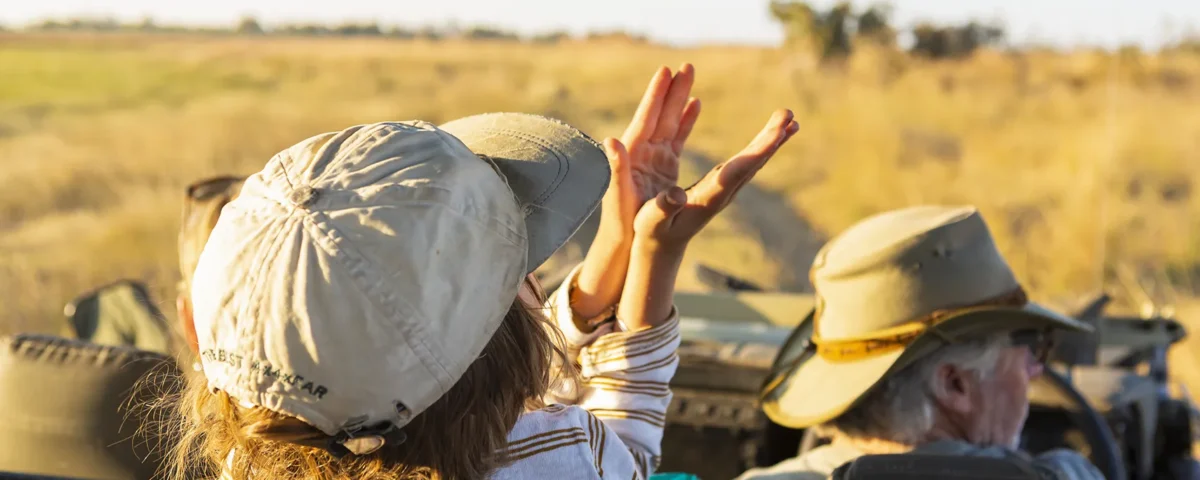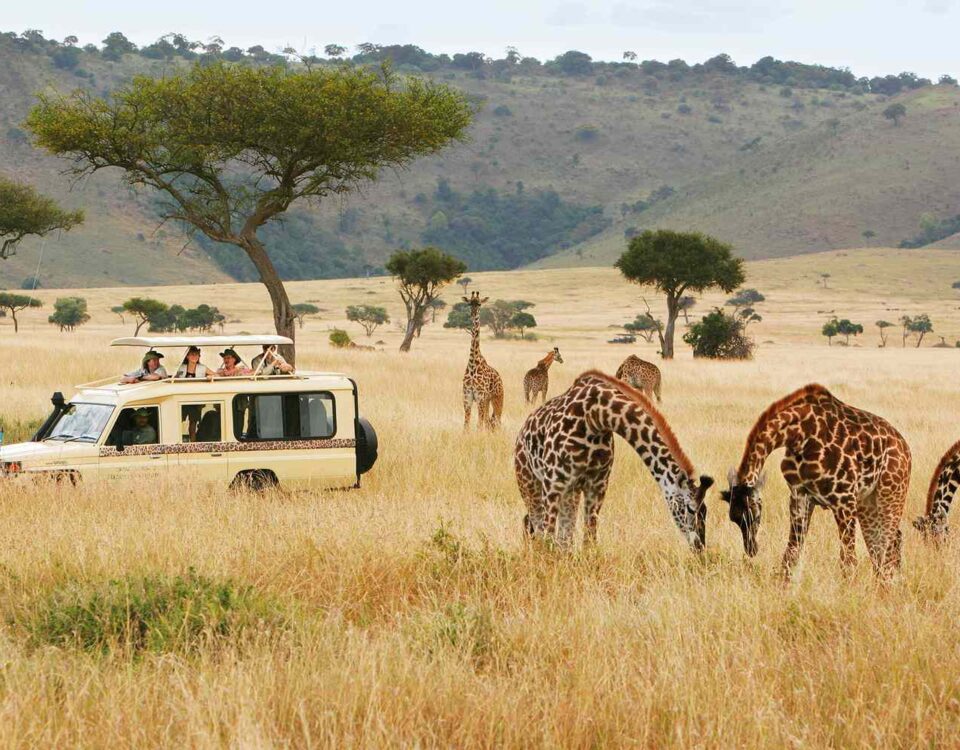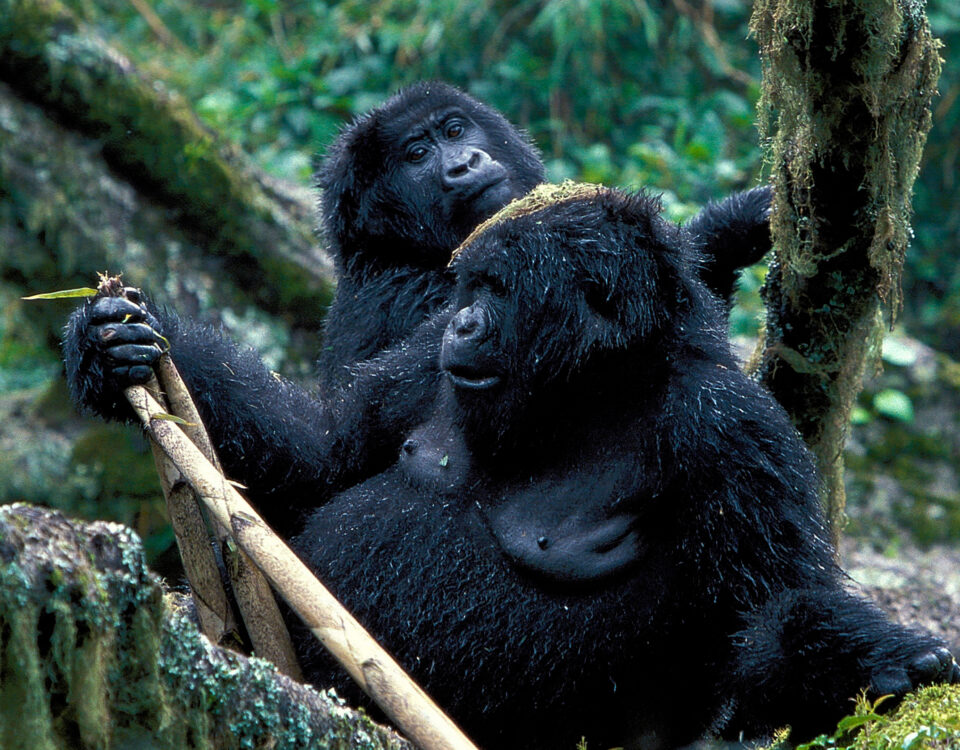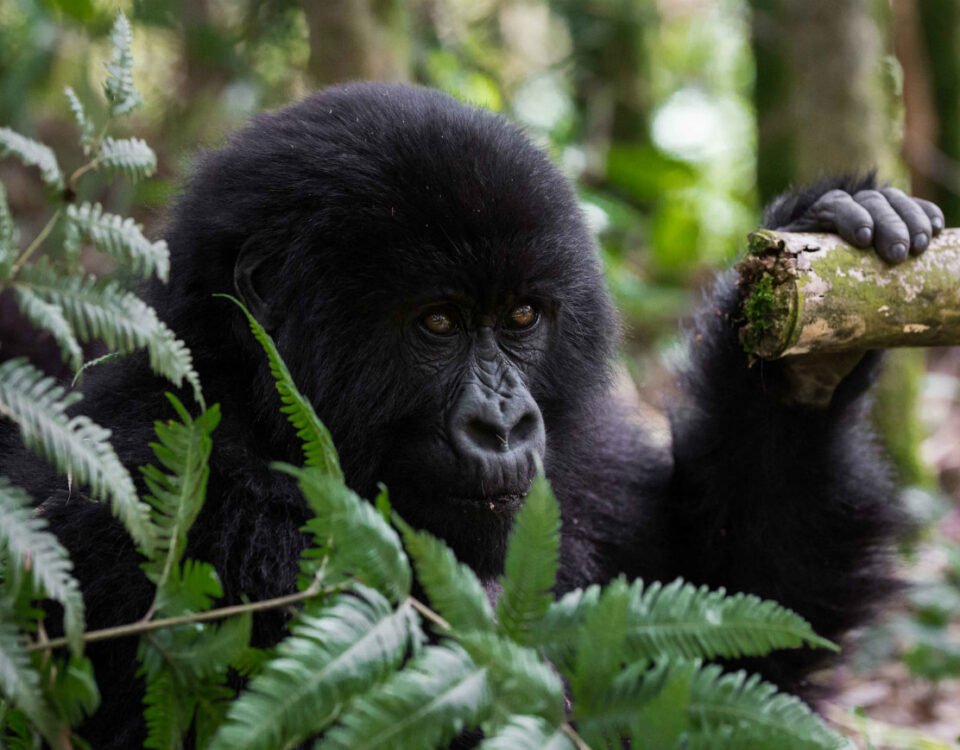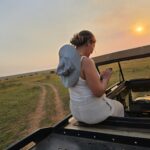
Is There a Chance to See the Big Five on a Uganda Game Drive?
August 8, 2025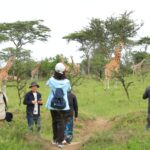
Are Walking Safaris Available in Uganda’s Game Parks?
August 8, 2025Can Children Participate in Game Drives?
One of the most common and important questions for traveling families planning a safari is: Can children participate in game drives? At Murchison Falls Tours, we understand that today’s families seek not only adventure but also shared learning, connection with nature, and meaningful cultural experiences that are safe and suitable for all ages. Fortunately, Uganda safaris offer a wide range of family-friendly options that allow children to actively take part in wildlife adventures across the country’s most iconic destinations.
What makes Uganda stand out as a family safari destination is its blend of breathtaking wildlife, scenic landscapes, immersive cultural activities, and a welcoming, child-friendly environment. From thrilling Murchison Falls Safaris to unforgettable Uganda Gorilla Trekking Safaris, the Pearl of Africa is uniquely suited for creating lasting family memories. Many lodges and camps are equipped with family units, child-oriented guides, and tailored activities that balance excitement with safety and education.
Can Children Participate in Game Drives? A Family-Friendly Safari in Uganda
In this comprehensive guide, we will explore everything you need to know about taking children on game drives in Uganda. We’ll answer questions like: What’s the best age for kids to join game drives? Are Uganda Wildlife Safaris suitable for younger travelers? Can Uganda Gorilla Safaris be customized for older children? Along the way, we’ll incorporate the country’s other top safari experiences, including Uganda Chimpanzee Safaris, Uganda Birding Safaris, Uganda Cultural Safaris, and the increasingly popular Renai Safaris. Each paragraph will re-emphasize the central theme—Can children participate in game drives?—while offering detailed, trustworthy insights to help parents plan with confidence.

game drives for Children
Understanding Family-Friendly Game Drives in Uganda
So, can children participate in game drives? Yes—Uganda is becoming one of Africa’s top emerging destinations for family-oriented wildlife safaris. With its diverse national parks and lower tourist congestion compared to other regions, Uganda provides a more personalized and flexible safari experience, which is especially beneficial when traveling with children.
Murchison Falls National Park, for example, is a fantastic choice for families. Game drives here are rich in wildlife sightings—including elephants, lions, giraffes, and buffalos—but they’re also conducted at a relaxed pace. With flat savannah landscapes and wide-open viewing opportunities, children can easily spot animals without straining or losing interest. Many lodges in the park offer children’s menus, family rooms, and nature-based activities tailored to young minds.
What Makes Game Drives in Uganda Suitable for Children?
Another major advantage of Uganda’s family safaris is the option for private game drives, which give families the flexibility to move at their own pace. Need a break for snacks, bathroom stops, or simply a shorter outing? No problem. This kind of adaptability helps answer the ongoing question—Can children participate in game drives?—with a big yes.
For safety, most parks recommend a minimum age of 5 years for regular game drives, though some parks or operators may accept younger children on private tours. This age range ensures children are old enough to appreciate the experience while maintaining the necessary calm and silence during wildlife viewing.
Whether you’re enjoying Uganda Wildlife Safaris in Queen Elizabeth National Park or Renai Safaris that combine cultural elements and game drives, Uganda stands out as a welcoming destination for families seeking genuine, enriching safari adventures.
Best Parks for Children on Uganda Safaris
Which National Parks Are Most Suitable for Kids?
When planning a safari with children, not all national parks are created equal. The key question parents often ask is: Can children participate in game drives across all Uganda parks? The answer is yes—but some parks are particularly ideal for family safaris, offering excellent wildlife sightings along with infrastructure suited for younger travelers.
Murchison Falls National Park leads the list. The park’s flat terrain, abundance of wildlife, and boat cruises on the Nile offer exciting and varied experiences. Children especially enjoy boat safaris where they can safely watch hippos, crocodiles, and elephants along the riverbanks. These scenic rides provide a calmer, seated alternative to bumpy road drives, making them ideal for younger adventurers.
Lake Mburo National Park is another great option. This smaller park is less crowded, and game drives are typically shorter—ideal for keeping children’s attention spans engaged. It’s also one of the few parks where walking safaris and horseback rides are permitted, offering exciting alternatives for older kids.
Queen Elizabeth National Park provides a blend of game drives, boat safaris on the Kazinga Channel, and cultural village visits, making it perfect for Uganda Cultural Safaris with children. The park is home to tree-climbing lions, herds of elephants, and over 600 bird species—great for families exploring Uganda Birding Safaris together.
Parents looking to incorporate primate experiences should know that most Uganda Gorilla Safaris and Uganda Chimpanzee Safaris require participants to be at least 15 years old. However, older teenagers can take part in these treks, and combining a Uganda Gorilla Trekking Safari with game drives creates a well-rounded and exciting itinerary for families with teens.
Educational and Cultural Experiences for Young Travelers
Beyond wildlife viewing, Uganda’s safaris offer immersive, educational experiences that leave lasting impressions on young minds. Parents often ask: Can children participate in game drives and also benefit from cultural learning? The answer is yes, and this is where Uganda truly shines. Its rich cultural diversity and community-based tourism make it a natural classroom where children can learn through direct experience.
Uganda Cultural Safaris introduce families to the traditions and heritage of local communities. In western Uganda, children can visit the Batwa pygmy community, learning about their ancient forest lifestyle, hunting techniques, and music. In the north, interactions with the Acholi and Alur people allow for drumming lessons, craft-making, and participation in traditional dance. These experiences foster cross-cultural appreciation and empathy.
How Do Uganda’s Cultural and Learning Opportunities Enhance Family Safaris?
Educational visits to conservation centers, like the Ziwa Rhino Sanctuary, offer exciting encounters with rhinos while teaching kids about species protection and environmental stewardship. Combining such visits with a Murchison Falls Safari allows children to understand wildlife from both an observational and conservationist point of view.
At several lodges, child-friendly nature walks are led by experienced guides who tailor explanations to younger guests, pointing out animal tracks, bird calls, insects, and medicinal plants. These hands-on activities complement the excitement of game drives with deeper understanding.
So, can children participate in game drives and also gain something meaningful? Without a doubt. With a careful blend of wildlife, cultural immersion, and fun, Uganda provides families with a safari experience that goes far beyond sightseeing—it’s transformational for all ages.
What About Gorilla and Chimpanzee Safaris?
Are Uganda Gorilla Safaris and Uganda Chimpanzee Safaris Suitable for Teens?
Many parents with teenagers are interested in Uganda’s unique primate experiences but often wonder: Can children participate in game drives and also join gorilla or chimpanzee trekking? While these treks are physically demanding and require maturity and discipline, older teens—typically 15 years and up—can absolutely participate.
Uganda Gorilla Trekking Safaris in Bwindi Impenetrable Forest or Mgahinga are bucket-list adventures that offer once-in-a-lifetime encounters with endangered mountain gorillas. The treks can last anywhere from 2 to 6 hours, depending on where the gorilla families are located, and involve navigating dense jungle terrain. For fit and enthusiastic teenagers, the experience is deeply rewarding and unforgettable.
Uganda Chimpanzee Safaris in Kibale Forest or Budongo Forest are slightly less strenuous and provide exciting, fast-paced tracking of our closest relatives. Teenagers will love watching the social behavior of chimps—feeding, grooming, playing, and calling to each other through the treetops.
Combining primate trekking with game drives creates a perfect blend of physical challenge and wildlife exploration. This makes Uganda a standout for Renai Safaris that integrate varied environments and experiences.
While younger children under 15 cannot join gorilla or chimpanzee treks, they can engage in other activities such as nature walks, village visits, birdwatching, and family game drives. This ensures no one in the family feels left out while older kids venture into the forest for their extraordinary encounters.
Safety, Comfort, and Practical Planning for Family Safaris
What Should Parents Know Before Taking Children on Game Drives in Uganda?
While the answer to “Can children participate in game drives?” is yes, thoughtful planning is key to ensuring comfort, safety, and enjoyment for everyone. Uganda Best Safaris are designed with these considerations in mind, offering customized itineraries, flexible schedules, and accommodations that cater to families.
First and foremost, choose safari lodges that are family-friendly. Many offer babysitting services, child-friendly menus, and fenced premises for added security. Be sure to communicate your children’s ages and interests when booking, so your itinerary can be tailored accordingly.
Game drives should be kept shorter for younger kids—ideally 2 to 3 hours—with built-in breaks for snacks and rest. Bring sun protection, insect repellent, lightweight clothing, and binoculars to enhance the child’s experience.
Health and safety are top priorities. Uganda is a safe country for travel, especially in national parks and tourism zones. However, families should consult with their doctor about vaccinations and malaria prophylaxis before traveling. Water should always be bottled, and children should be supervised closely around wildlife and rivers.
Finally, pack with purpose. Encourage your children to bring a journal, camera, or field guide to document their experience. This turns the safari into a personal adventure, sparking curiosity and a love for nature that lasts long after the trip ends.
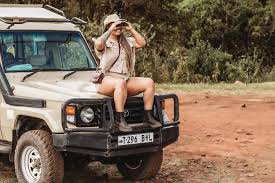
What Time of Day Are Game Drives Conducted?
Why Uganda Is the Best Safari Destination for Families
So, can children participate in game drives? The answer is a confident and resounding yes—especially in Uganda. This beautiful, diverse country offers far more than wildlife viewing; it creates opportunities for shared family discovery, learning, and cultural exchange. From the roaring cascades of Murchison Falls to the dense gorilla-filled forests of Bwindi, Uganda is a land of unforgettable moments.
Whether you’re planning your first safari or returning for a second adventure, Uganda safaris offer an enriching and safe experience for families with children of all ages. With options to combine Uganda Wildlife Safaris, Uganda Birding Safaris, Uganda Cultural Safaris, and even Uganda Gorilla Trekking Safaris for teenagers, you can build an itinerary that reflects your family’s interests and comfort level.
At Murchison Falls Tours, we specialize in designing personalized safaris that bring families closer to nature—and to each other. Let us help you create a journey where every member of the family, young or old, can marvel, learn, and grow. Because in Uganda, every game drive is more than a tour—it’s a story waiting to be told.

